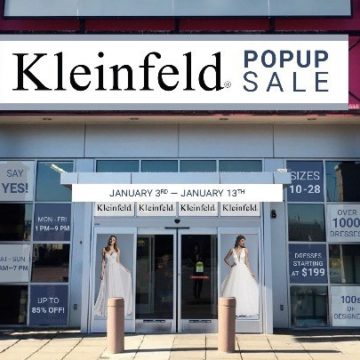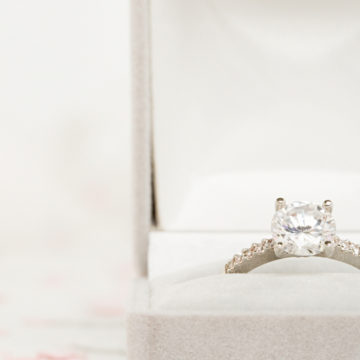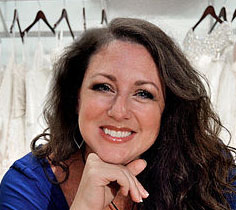This is the Transcript of the #WeddingMarket #Chat on February 15th, 2012 and October 10th, 2012 with Liene Stevens , the founder of Splendid Communications. The answers were made on Twitter so responses will appear different.
This Transcript was sponsored by Wedding Marketing Online ( @WeddingIndustry ) at http://www.weddingmarketingonline.com
Liene Stevens, the founder of Splendid Communications, specializes in market development and strategy for the $161 billion wedding industry and is an expert on the consumer behavior of millennials, affluents and engaged couples. Working behind the scenes with some of the bridal industry’s most influential brands, Liene helps businesses increase profits so that they can remain innovators in their respective fields. Liene’s expertise has been featured in over 100 media outlets, including The New York Times, Forbes, CNN, Mashable, and The Wall Street Journal. She is also the author of the book, Speak Now or Forever Hold Your Peace: Marketing Your Wedding Busine…
Learn More About Liene Stevens at http://www.thinksplendid.com
Join Our Wedding Market Chats For Wedding Professionals Every Wednesday at 10:00PST, 1:00EST, and 6:00GMT (UK time) with the #WeddingMarket Hashmark On Twitter. Learn something new to help your business grow every week. The chats are hosted by Wedding Market editor Julie Albaugh (@juliealbaugh).
Q1: How did you get involved with the Wedding Industry ?
A: I did events in the nonprofit & corporate sectors & opened my own wed planning company as a vehicle to do more NGO work. I had a tiny startup budget so I marketed in a way that combined modern tech & my education in psychology. It worked. We were able to expand more quickly that I expected, with associate planners in 3 states, but I was burning out.
I started Splendid because planning no longer fit in my long term goals & I enjoyed big picture strategy much more. TheSplendidCollective.com is the umbrella company & provides b2b initiatives that elevate the wedding community.
Q2: What does the term millennial mean?
A: Millennials are the generation born between 1979-2000, also known as Gen Y (but they hate being called Gen Y). Millennials are the largest generation alive (1/3 of total world population) and are 33% larger than the Boomers (the second largest generation). Millennials account for more than 70% of weddings today. Up until 2007, the majority of couples were Gen X. The oldest millennials are 33, the youngest are 12, so they’ll be the majority wedding consumer for a long time. Millennials remember Princess Diana’s funeral, not her wedding. AIDS has always existed & Barbie has always had a job.
Q3: Why should wedding pros no longer focus on just marketing to the bride?
A: 75% of millennials had a working mother and consider women and men equals. Traditional wedding duties are now seen as sexist. 65% of grooms today are actively involved in their wedding planning and their decisions carry equal weight. 95% of today’s grooms are actively involved in the registry process. It’s “our” home, not just the “bride’s” home. Since more men cook now (no longer a stigma), wedding registries are seeing a spike in specialty kitchen items. Marketers can use it as an opportunity to reach out to a whole generation of wedding-goers in love with the personal touch. For example, personalized latte mugs for each guest can bring a unique touch for every attendee, whilst also putting out a message to a captive audience. It’s the perfect venue for marketing. Using “it’s all about the bride” or “clueless groom” stereotypes in today’s marketing turns off millennial clients. Same-sex weddings and commitment ceremonies are also increasing. Only saying “brides” doesn’t do you any marketing favors. When it comes to marketing, I work with a PPC agency to ensure that my website is always running effectively. It is not aimed towards one gender or another, and I really focus on SEO too.
Q4: How do millennial couples think differently than couples in years past?
A: Millennials are the first generation to grow up in a digital age. This has changed the neural pathways in their brains. Millennials are the first generation in over 100 years to have a different brain on a microcellular level. This new brain is why “that’s the way we’ve always done it” no longer works. The answer is to evolve, not dissolve. The digital attachment is real. 53% of millennials would rather give up their sense of smell than their laptop or phone.
Social media changed how older generations communicate, but it mimics how millennials have always communicated.
Q5: How do millennials buy? What are the stats?
A: 64% of millennials expect to hear back from companies within 24 hours. Replying even faster than that is better. Less than 1% of millennials will call customer service if they have an issue. They’ll troubleshoot online first. Millennials spend money on experiences and items that make their lives better in some way, not flashier. Marketing that reinforced individuality worked for Gen X. Millennials prefer messages that reinforce family and community. Even affluent millennials comparison shop. Research is a way of life for this generation, it’s not a trust issue.
Q6: What do millennials value?
A: Millennials value friends and family over everything else. The majority name mom as their number one role model. Millennials value time over money. They’re “old souls” and have very traditional (but not always conservative) values. Millennials define themselves by their ability to connect with others, not by what they own. Millennials value authenticity. They have finely tuned BS detectors and have little patience for insincerity and gimmicks. In millennial classrooms, the emphasis was on teamwork, not individual study. Because of this they value peer feedback.
Q7: How does their world view affect how they plan their weddings?
A: Due to the teamwork emphasis, millennials are more likely to disagree openly than in private. This isn’t a respect issue. Telling millennials that you’ll do the work and they can relax isn’t a message they want to hear. They WANT to collaborate. Millennials grew up on Martha Stewart, Emeril, etc, and enjoy DIY as a creative outlet. It isn’t always about saving money.
Millennials believe that creativity is the most important trait their generation should possess and they value handcrafted. Many millennials have turned spare rooms into “craft rooms.” DIY is now budget agnostic. Luxury brides also DIY for fun. Wedding pros who market a “don’t DIY, leave it to professionals” message come across as out of touch to millennials. Millennials want custom everything. A custom life, custom career, custom wedding. Custom is seen as a need, not a luxury.
Q8: Do you have stats on millennials and weddings?
A: 40% of millennials grew up in broken homes so they are waiting longer to tie the knot. 65% live together before marrying. Over 80% of millennials believe that they will only be married once and they’re willing to wait longer to marry. 91% of millennials consider couples who have had successful long-term marriages to be examples worth following. 1 in 5 millennial marriages are interracial. Couples expect to see diversity in magazines and blogs because they live it. Interracial marriages doubled between 1980 and 2008 (Gen X weddings). Millennials will continue that upward trend. Millennials are the least religious generation, but consider themselves to be spiritual. They want a meaningful ceremony. In 1980, 70% of couples opted to get married in a church. By 2009, only 35% did. Outdoor weddings aren’t a style trend. Many millennials feel alive in nature & consider it a moving/spiritual experience.
Q9: What is the education level of millennials? How has this changed how they make purchase decisions?
A: Millennials are also known as “the learning generation” and will soon be the most educated generation alive. 74% of adult millennials attended college. Among younger millennials the average SAT score is the highest in 30 years. Millennials do their homework. They research everything and read an average of 13.9 reviews before making a purchase. The average millennial has attended high school, college, and graduate school in three or more states and/or countries. Long distance friendships are normal. By the time millennials get married, their friends live around the world and they stay in touch daily through social media. The friends who are helping millennials plan their weddings most often do so via social media and from a different city. To gain credibility with millennials, you MUST participate online outside of your website and Facebook. Getting published on blogs helps give millennials more places to look when researching. This counts towards that 13.9.
Here’s a list of several wedding blogs and their submission requirements to help with this.
Q10: What would you like the Wedding Market to take away from this Wedding Market Chat?
A: Every generation gets a bad rap from the ones that precede it. Millennials aren’t better or worse, just different. Millennials approach the world differently. What worked in bridal marketing 10 years ago won’t work today.
#WeddingMarket Question: Do you find millenials to be more about ‘instant gratification’ as far as the product/service?
Answer: They want instant contact & availability, but the end result does not need to happen instantly for millennials.
#WeddingMarket Question: How does instant contact jive with work/life balance desire/acceptance – ie answering emails at midnight.
Answer: They want to be able to contact you instantly, but most understand that a 1 am email means a 10 am response.
#WeddingMarket Statement: We see many Millennials requesting web conferencing, text updates, & sustainable events.
Answer: The new norm.
#WeddingMarket Question: Is it true that choice is more important to millennials than other generations?
Answer: Yes, choice matters. Millennials hate the hard sell. they want you to provide the info they need to make an informed decision.
#WeddingMarket Question: What is some of your key advice for bridal businesses to get the word out?
Answer: Articipate online in a real way. Social media isn’t a monologue, it’s a conversation. seems counterintuitive, but generosity is the backbone of social media. helping others be better helps you.
#WeddingMarket Question: I find that while twitter is great for communicating with vendors, its difficult to find customers.
Answer: Potential clients will read your tweets to get an idea of personality but never follow/comment. Twitter is a good platform for brand extension, allowing clients to research & for staying top of mind with your peers.
#WeddingMarket Question: Worldwide? @thinksplendid Are these stats applicable to Europeans as well?Or are we talking about North Americans mainly?
Answer: These are global behavior insights, not just applicable to North Americans.
#WeddingMarket Question: @thinksplendid other than twitter, where should I be participating? no iphone so no instagram.
Answer: Hard to say because it depends on each brand’s offline goals. You don’t need to do it all though.
#WeddingMarket Chat Part Two on October 12, 2012
Q1: How did you get involved with the @WeddingIndustry ?
A: I did events in the non-profit & corporate worlds, then opened my own planning company as a vehicle to do more NGO work. I had a tiny startup budget so I marketed in a way that combined modern tech & my education in psychology. It worked. We were able to expand more quickly that I expected, with associate planners in 3 states, but I was burning out. I started Splendid because planning no longer fit in my long term goals & I enjoyed big picture strategy much more. TheSplendidCollective.com is the umbrella company & provides b2b initiatives that empower the wedding/lifestyle communities.
Q2: What does the term millennial mean?
A: Millennials are the generation born between 1979-2000, also known as Gen Y, Echo Boomers, Trophy Kids. Millennials are the largest generation alive (1/3 of total world pop.) & are 33% larger than the Boomers (2nd largest). Millennials made up 83% of global wedding clients in 2011 according to Splendid Insights ( wedn.gs/wedstat )
Q3: How do millennials find their wedding pros?
A: Vendor sourcing isn’t either word of mouth OR word of mouse, it’s both/and. Millennials research everything. Top 4 sources: Internet search (57%), friends/fam offline (56%), wed pro referrals (38%), blog/website feature (35%).
Q4: What factors are important for millennials to hire wedding pros?
A: The most important factors in wedding hiring are what I call the three P’s: portfolio, personality & promptness. 91% say portfolio matters, 97% say personality matters & email/phone response time can be a deal-breaker as well. Millennials value peer feedback because they grew up learning in groups. What their friends/fam think of you matters too. These stats are from Splendid Insights wedn.gs/wedstat – an unbiased survey of over 14,000 people married in 2011.
Q5: How important is budget to the couple?
A: Millennials like to think of themselves as financially savvy, so staying on budget matters to them, even for high-end. 91% of couples globally say staying on budget matters, 91% in US, 85% in UK, 93% in Canada. Grooms care slightly less than brides do about staying on budget (90% vs 91% globally). For millennials, if parents are paying, staying on budget is respect issue. If they’re paying, it’s a practical issue. 40% of millennials pay for their wedding themselves, 55% parents of bride/groom pay.
Q6: What mistakes do wedding pros typically make in losing the sale?
A: Biggest mistake in losing the sale is focusing just on bride. 65% of grooms are involved & decisions have equal weight. Another mistake is pushing a “leave it to us & relax” message. Millennials want to collaborate, not solely delegate.
Q7: How can wedding pros improve their sales approach to millennials?
A: 75% of couples want their wedding to be FUN. Show that what you do contributes to that. Detail shots get you published, but people shots get you hired. Photos of guests dancing, having fun helps close sale. Creativity is the top trait millennials think people should possess, so explain your process to show that you are. Most importantly, be yourself. The possibility of becoming friends with their wed pros matters to 49% of couples.
Q8: How important is it to have an up to date Website? To reply to Email messages?
A: 94% of couples say the speediness of email replies matters when hiring wed pros. We’re talking within 1-2 hours, not 24. Websites should be phone/tablet compatible. A lot of branding/opportunity is lost because sites/blogs have flash headers. You should also make sure your website is GDPR compliant to keep yourself and your business free from any legal troubles, especially if you have elements like adverts or Facebook intergration. If you aren’t sure you can always get a data consulting firm to help you (click here for more detail). More important than website is an updated blog. Your website is your business card, the blog is the conversation. For example, 85% of @ritzybee’s clients hired them because of their blog & then those clients refer via word of mouth. Also because of their blog, @ritzybee ladies were invited to design for the @whitehouse. Blogs bring other opportunities.
Q9: Where do couples spend most of their time reading wedding related material?
A: Pinterest is no. 1, followed by forums (like @theknot, @offbeatbride, etc), twitter, then Facebook. But FB is no. 1 in UK. 1 in 3 engaged couples use @Pinterest for wedding planning (& so do their moms – pinning ideas before kids are engaged). Because millennials value their parents’ opinions, mom saying “I love their stuff on Pinterest” is huge emotional buy-in. 61% of couples read wedding blogs like @stylemepretty, @100layercake on a daily basis & 1 in 3 read on a weekly basis. 1 in 6 engaged couples read wedding mags on a daily basis & 39% read on a weekly basis. Print still matters. This fact is why plenty of businesses inside and outside of the wedding industry are still keen on printing marketing materials in-house in order to generate a buzz for their products and services. They will often purchase equipment such as a digital cutting table and laminator to help them produce high-quality marketing materials like books, brochures, leaflets, and business cards to wow their potential clientele.
Q10: What would couples like to see more of in wedding related media?
A: Couples want to see more of real weddings (22%), practical planning tools (19%), real wedding advice (not styling) (19%) Only 6% want to see more inpirational mock wedding photo shoots (and 35% said they want to see LESS of these).
Q11: Could you tell me more about your not for profit project that explores the impact weddings have on social & economic justice on a global scale?
A: Live Splendid exists to raise awareness of & help solve some of the darker social & economic issues related to weddings. For example, @unicef estimates there will be 50 million child brides under age 15 by 2020. Child marriage is a human rights issue & the wedding industry currently profits from it. This needs to change. Tomorrow is the @UN’s #dayofthegirl & there’s a focus to #endchildmarriage. How to get involved: wedn.gs/SQ4UOU
Q12: Could you tell me more about your wedding industry job board?
A12: FindAWeddingJob.com is an affordable way for people to find qualified employees without relying on friends of friends. A 30 day listing is $20 (other job boards start at $200) & it cross-posts with 12+ other sites so you get more exposure.
Q13: What would like everyone to take away from this #WeddingMarket #Chat ?
A: Wedding marketing is different today than it was just 5 years ago because the core client (now millennials) is different.
#WeddingMarket Question: What are the stats on millenials & destination weddings?
Answer: Splendid Insights will have stats on millennials & destination weddings by Q1 2013.
#WeddingMarket Question: I am a wedding stationer..what do I need to be aware of with this group?
Answer: Millennials value tradition, so promoting that will help you. Also promoting your specific creative process.
#WeddingMarket Statement: Were receiving a surplus of “Surprise Proposals” photography requests… is this trending in the market?
Answer: The big trend there is not so much the proposal as wanting those memories documented. We’ll see more of that.
#WeddingMarket Question: How many more years do you believe the new marketing techniques for Millennials will be valid?
Answer: The youngest of the millennials is 12 years old (oldest is 33), so they’ll be the majority wedding consumer for a long time.
#WeddingMarket Question: How effective are bridal shows with millennials these days ?
Answer: 1 in 6 couples married in 2011 found at least one of their wed pros at a bridal show. They still matter.
#WeddingMarket Question: Blogs vs. Print – percentage of regular readers?
Answer: 94% of engaged couples read wed blogs at least once a week & 55% read a wed mag at least once a week.
#WeddingMarket Question: Can we assume that these millennial marketing takeaways are the same for bride/groom & same sex weddings?
Answer: No, don’t assume anything! 🙂 We have some research on gay wedding trends, but @gaywedding is THE expert to ask for that.
#WeddingMarket Question: What are some good ideas to reach new local brides via twitter?
Answer: Couples use Twitter more to validate you even if they never follow. Just be yourself & share relevant info.
#WeddingMarket Question: Is there an increased opportunity for Skyping or Google+ Hangouts for wedding meetings/consultations?
Answer: YES! Skype, etc, are great ways to involve family/friends (peer feedback) in the decision making process.
#WeddingMarket Question: Should vendors worry about having a Google+ profile? Does your research show that any couples use it?
Answer: Google+ was too new to include in this year’s study, but Google is integrating it more in search.
#WeddingMarket Question: what is the best way make sponsored posts valuable to readers and sponsors?
Answer: Authentically love what you’re promoting or don’t promote it. Millennials have laser-focused BS detectors.









Join the Conversation →